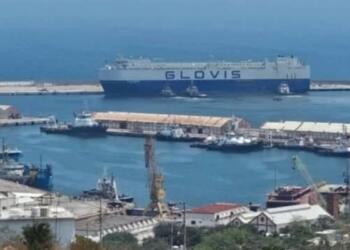 The Mexican government is seeking to reposition its maritime transport sector by issuing a decree granting tax incentives under Plan Mexico , announced on January 13 by President Claudia Sheinbaum . The plan is intended to incentivize the construction of vessels, specialized machinery, and dual training programs.
The Mexican government is seeking to reposition its maritime transport sector by issuing a decree granting tax incentives under Plan Mexico , announced on January 13 by President Claudia Sheinbaum . The plan is intended to incentivize the construction of vessels, specialized machinery, and dual training programs.
According to this decree, published on January 21, 2025 in the Official Gazette of the Federation (DOF) , individuals and legal entities have the possibility of immediately deducting, until September 30, 2030, investments made in new fixed assets, specifically in machinery, equipment and ships .
This deduction replaces the ordinary percentages established in the Income Tax Law (ISR), provided the assets are kept in use for at least two years.
Another highlight of the decree is that it establishes an additional 25% deduction for technical and scientific training expenses for active workers registered with the Mexican Social Security Institute (IMSS) , provided that companies have agreements with the Ministry of Public Education (SEP) for dual education.
“Stimulating innovation and dual training is essential to professionalizing the sector. It will allow us to train a generation of technicians specialized in shipbuilding and port operations,” emphasized José Manuel Urreta Ortega , national president of the Mexican Chamber of the Maritime Transport Industry (Cameintram) .
The decree is a watershed for the maritime industry in Mexico, Urreta asserted, adding that “never before have we had such a comprehensive fiscal instrument focused on vessel construction and port equipment.”
The document published in the DOF establishes that as a measure of budgetary control in the application of fiscal incentives, the total amount that the Evaluation Committee, composed of representatives of the Ministries of Finance , Economy and the Advisory Council for Regional Economic Development and Relocation , will authorize to companies, will not exceed 30 billion pesos (mdp) during the validity of the decree.
| Type of stimulus | Percentage | Validity | Use |
| Deduction for shipbuilding | 67% (2025-2026) 62% (2027-2030) | 2025-2030 | For new fixed assets |
| Additional training deduction | 25% | 2025-2030 | With SEP agreements, IMSS workers |
| Total budget | 30 billion pesos | Until September 2030 | Of the total, 1,500 million pesos are for training incentives. |
Of that total, 28.5 billion pesos will be allocated to the tax incentive for investment in new fixed assets, and the remaining 1.5 billion pesos will be allocated to the tax incentive for the additional deduction for training and innovation expenses.
“For Cameintram, this decree opens a historic window of opportunity to reposition national maritime transport,” he emphasized, estimating that if these incentives are leveraged, Mexico can become “a strategic hub for shipbuilding and coastal transport, with a direct impact on logistical sovereignty and regional competitiveness.”
The decree also promotes investment in technological developments that lead to inventions, patents, and certifications, to integrate more Mexican companies, especially micro, small, and medium-sized enterprises (MSMEs), into local and regional supply chains.
According to the DOF, at least one billion pesos are destined for taxpayers with annual incomes below 100 million pesos .
The fiscal incentives granted by the federal government through Plan Mexico, which seeks to position the country as one of the 10 largest economies in the world by consolidating strategic sectors such as the maritime sector, represent an opportunity for the development of this sector, particularly in shipbuilding.
With specific deductions for investments in vessels, a focus on innovation and training, this decree not only seeks to boost the national economy but also position the country as a key player in the global maritime industry.
Meeting at San Lázaro
This Wednesday, Cameintram business leaders will hold a meeting with members of the Chamber of Deputies’ Marine Commission to address various issues, including continuing to promote cabotage routes in the Mexican Pacific (known as Short Distance Maritime Transport), boosting shipbuilding, and continuing to raise awareness of oil cabotage issues with authorities for a short-term solution to the financial crisis in the sector, among other topics.
Representative Humberto Coss and León Zúñiga , president of the Navy Commission, will be present at the session.
Another topic to be discussed is identifying opportunities under the decree that grants tax incentives to strengthen the national maritime sector, especially with regard to vessel construction, specialized machinery, and dual training programs, as published in the Official Gazette of the Federation (DOF).
“For entrepreneurs in our sector, this decree opens a historic window of opportunity to reposition national maritime transport. If we properly leverage this incentive framework, Mexico can become a strategic hubfor shipbuilding and coastal transport, with a direct impact on logistical sovereignty and regional competitiveness,” stated Urreta Ortega.
Comment and follow us on X: @GrupoT21













